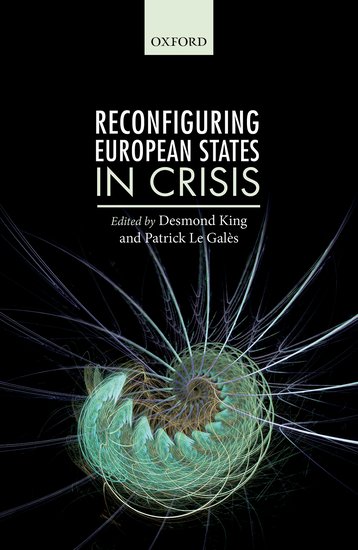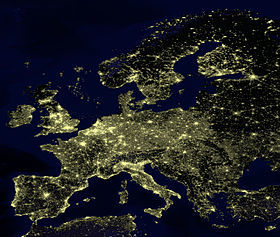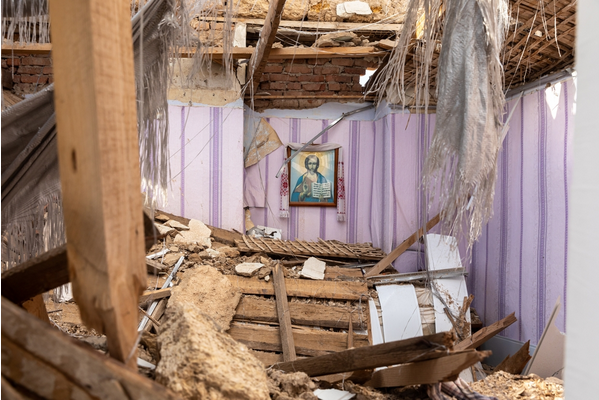


Commemorating the Holocaust After the War
2 October 2017
The carbon footprint of French households and international trade
3 October 2017T The contemporary state in Europe is simultaneously experiencing processes of destruction and marginalization, and dynamics of creation and expansion. What are their driving forces? How can they be explained? What kind of State do these transformations produce?
 These are the questions explored in the collective book “Reconfiguring European states in crisis”*, edited by Patrick Le Galès, CNRS research director at Sciences Po’s Centre for European Studies and Comparative Politics (CEE) and the Urban School’s dean Desmond King, a professorial Fellow at Nuffield College Oxford and associate professor at the CEE.
These are the questions explored in the collective book “Reconfiguring European states in crisis”*, edited by Patrick Le Galès, CNRS research director at Sciences Po’s Centre for European Studies and Comparative Politics (CEE) and the Urban School’s dean Desmond King, a professorial Fellow at Nuffield College Oxford and associate professor at the CEE.
The fundamental elements
The authors identify four major transformation processes:
1- Changes in scale
- They start with the observation that States have lost their monopoly or quasi-monopoly on the exercise of political authority. By working with and for transnational and subnational public and private actors – businesses, NGOs, international organizations, the European Union, regions and cities – States take on the role of regulatory bodies or of managers of non-state actors. This “denationalization” of political authority paradoxically gives States new capacities to act, but within a more limited framework.
- Furthermore, while States developed by creating statistical apparatuses, categories, norms and standards, they are now measured, evaluated and classified by non-state public organizations, and even private bodies. In particular, their economic credibility is strongly shaped by credit rating agencies and banks. Other examples are internationally defined measures, criteria and norms for education, health and the environment. Others set the parameters for States.
- Finally, the book emphasizes a disconnection between State elites and the nation. Swathes of societies are reorganizing at different levels, be it the European bourgeoisie, Scottish society, global elites or migrant networks.
2- The transformations of capitalism

Signs hang from an event at Google’s office in Singapore. Jon Russell . CC by 2.0
Economic globalization, financialization and the growing power of global businesses: all of these actors protect property rights and investments, which researchers consider to be limiting the autonomy of States. New State activities are seeking to introduce market mechanisms. Market actors are contributing to the reconfiguration of the State, especially in the context of the financial crisis. Yet States remain actively involved on economic issues and are evolving their means of intervention: regulation, sovereign funds and innovation policy.
3 – Internal reforms
![Panneau indicateur d'un service public, administration française Par Jean-Louis Venet (Travail personnel) [CC BY-SA 4.0 (http://creativecommons.org/licenses/by-sa/4.0)], via Wikimedia Commons](http://www.sciencespo.fr/research/cogito/wp-content/uploads/2017/09/Panneau_indicateur_dun_service_public_administration_française-300x225.jpg)
Signboard of a public service, French administration by Jean-Louis Venet [CC BY-SA 4.0
4 – Redefined sovereign functions
Finally, exploring the State also raises the issue of force, violence and risk protection. The (perhaps temporary) decline of States’ “army and defense” pillar has gone hand in hand with investments in the areas of police, security and risk management. However, the security pivot does not appear to be making a clear and deep mark, especially given the European norms and rules protecting freedoms. Finally, social movements do not appeared to be playing – at least not yet – a central role in the configuration of the State.
The State’s three constituencies

Handelsraum im Raiffeisenverband Salzburg. By Raiffeisenverband Salzburg CC BY 2.0
The reconfiguration of States can also be explained by the interaction between State elites and three types of stakeholders: citizens; markets; and other States, the European Union and various public or private transnational organizations.
While it is most often assumed that State elites seek to respond to citizen needs and preferences, this book explores the hypothesis that the latter are but a first “constituency”.
Indeed, elites depend on financial markets as well, if only because they regularly need to refinance their debt. They are also dependent on major transnational businesses, external investments, the strategies of major businesses and evaluations produced by consultants.
Finally, the elites of European States constantly interact with the elites from other States and those from the European Union and other transnational organizations such as the OECD: experienced as a kind of encroachment, this type of relationships exacerbates the disconnection between the State and its nation. One of the authors, Chris Bickerton, suggests that European States have accepted constraints from the European Union in order to justify, and even impose, reforms that would be unacceptable in the context of national democracy.
Thus, States have ceded some of their autonomy to supranational institutions, either through trade agreements or through binding legal and political integration (like the European Union). They sometimes share their prerogatives with non-state organizations that lack territorial sovereignty but are responsible for public policy actions. Examples include social services and even the armed forces.
Policies implemented by State elites result from the demands, pressures and influences of these three “constituencies”, which both constrain them and give them more leeway.
The decline of the State’s unifying energy
Until recently, the State’s “unifying energy” was reflected in policies combating inequalities and territorial disparities, and promoting rationalization through, for example, statistics, the measurement system, the cadaster and the census. States also more or less boldly pursued cultural normalization, via language policies and integration programs. The goal of all of these policies was to make society more intelligible and unified.
However, the State’s structural changes and its creation/destruction mechanisms are increasing the gap between society and the State, leading to a decline in unifying energy: territories, social groups and other sectors of society are left in limbo. The State itself is fragmenting and its actions are becoming increasingly selective.
Land-use planning (which no longer worked) was followed by a policy of support for metropolises and for capitals as engines of innovation and of economic development. Higher-income social groups do not need the working classes or the poor anymore to win wars, as was the case in the twentieth century, or for industrialization.
New challenges and new changes?
Despite all these transformations, the State remains central in European societies. The current crises could push States either towards authoritarianism, a state of emergency and permanent austerity, or towards democratic renewal and new forms of collective action and of regulatory capacity. The various crises, and especially the issue of climate change, the refugee crises and the influence of the far right are powerful catalysts of processes reconfiguring the State. A transition is underway leading to a new cycle of the State.




